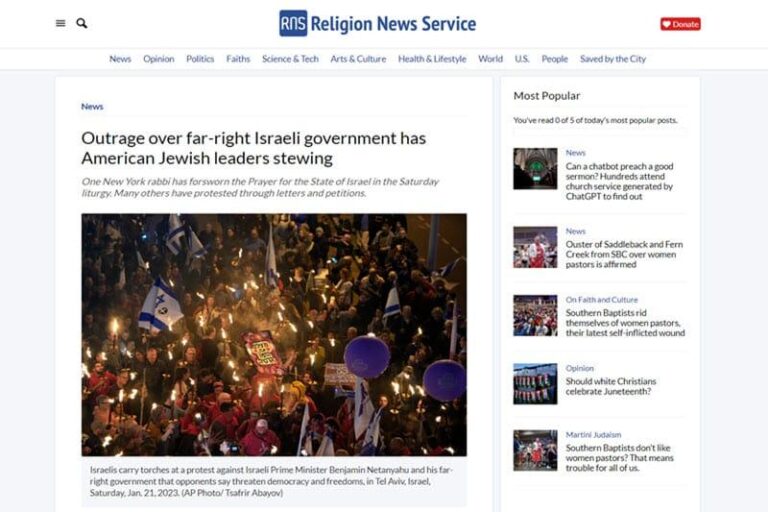Jewish communities across Canada have expressed strong condemnation following the Royal Canadian Mounted Police’s announcement of a war-crimes investigation targeting Canadian soldiers who served with the Israel Defense Forces (IDF). The probe, which marks an unprecedented scrutiny of dual-service veterans, has ignited widespread concern and backlash among Jewish organizations and political leaders. Critics argue that the investigation risks inflaming tensions and undermining Canada’s long-standing support for Israel, while raising complex questions about accountability and international law. This article examines the unfolding controversy, its implications for Canadian-Israeli relations, and the response from key stakeholders.
Jewish Community Condemns RCMP Investigation into Canadian IDF Veterans
The Jewish community across Canada has voiced strong condemnation over the RCMP’s decision to initiate a war-crimes investigation targeting Canadian veterans of the Israel Defense Forces. Community leaders argue that the probe undermines the service and sacrifices of these individuals, many of whom emigrated to Canada seeking peace and security. They warn that this legal action could set a perilous precedent, chilling free expression and unjustly stigmatizing soldiers who fought in complex and fraught conflict zones.
Representatives from prominent Jewish organizations emphasized their concerns, highlighting several key points in opposition to the investigation:
- Due Process Questions: Doubts about the legitimacy and evidence behind the allegations.
- Community Impact: Fear of increased antisemitism and social division within Canada.
- Veteran Support: Calls for recognition rather than criminalization of service members.
- Diplomatic Ramifications: Worries about deteriorating Canada-Israel relations.
| Stakeholder | Position |
|---|---|
| Jewish Community Leaders | Strongly oppose, label probe as unjust |
| RCMP Officials | Defend investigation based on legal obligations |
| Canadian IDF Veterans | Express concern, seek support and clarity |
Legal Experts Question Evidence and Demand Transparency in War Crimes Probe
Legal experts and community leaders have raised serious concerns over the integrity of the ongoing investigation into alleged war crimes involving Canadian members of the Israel Defense Forces (IDF). Critics argue that the RCMP’s evidentiary basis appears weak, emphasizing a lack of concrete, verifiable proof to substantiate such severe allegations. Calls for transparency have intensified, urging the authorities to disclose more detailed information about the investigation’s methodology, sources, and standards applied to avoid perceptions of bias or politically motivated prosecutorial actions. Key demands from legal professionals include:
Aspect
Status
Expert Concern
Evidence Clarity
Limited
Insufficient detail for public review
Investigatory Transparency
Opaque
Risk of political influence
Legal Oversight
Not Clear
Calls for independent watchdogs
Calls for Balanced Approach Emphasize Dialogue over Escalation in Sensitive Investigations
Stakeholders from various communities and legal experts have voiced calls for a measured and constructive approach amid the RCMP’s ongoing probe into alleged war crimes involving Canadian soldiers who served with the Israeli Defense Forces (IDF). Rather than allowing tensions to escalate, many emphasize the importance of fostering dialogue between all parties involved to ensure the investigation proceeds on a foundation of mutual respect and fairness. This approach seeks to avoid inflaming public sentiment or deepening divisions that could hinder both justice and reconciliation.
Advocates for a balanced methodology underline several key principles to guide the sensitive inquiry:
- Transparency: Clear communication of investigation protocols and progress updates.
- Impartiality: Ensuring all evidence is considered without bias or political influence.
- Engagement: Opening channels for community input and concerns alongside legal procedures.
- Protection of Rights: Upholding the rights of those accused as well as those alleging wrongdoing.
| Principle | Purpose | |||||||||
|---|---|---|---|---|---|---|---|---|---|---|
| Transparency | Build public trust in the investigative process | |||||||||
| Impartiality | Maintain credibility and fairness of outcomes | |||||||||
| Engagement | Incorporate diverse perspectives and concerns | |||||||||
| Protection of Rights |
| Principle | Purpose |
|---|---|
| Transparency | Build public trust in the investigative process |
| Impartiality | Maintain credibility and fairness of outcomes |
| Engagement | Incorporate diverse perspectives and concerns |
| Protection of Rights | Ensure fairness and dignity for all parties involved |
Let me know if you’d like me to help with anything else related to this content!
Key Takeaways
As the investigation unfolds, deep divisions remain within Canada’s Jewish community, reflecting broader tensions over how allegations of war crimes involving IDF soldiers should be addressed. The RCMP’s probe has sparked a fierce debate about accountability, national identity, and the complexities of international law. How this contentious issue will evolve remains to be seen, but it undoubtedly underscores the sensitive nature of balancing justice and diplomacy in an increasingly globalized world.




